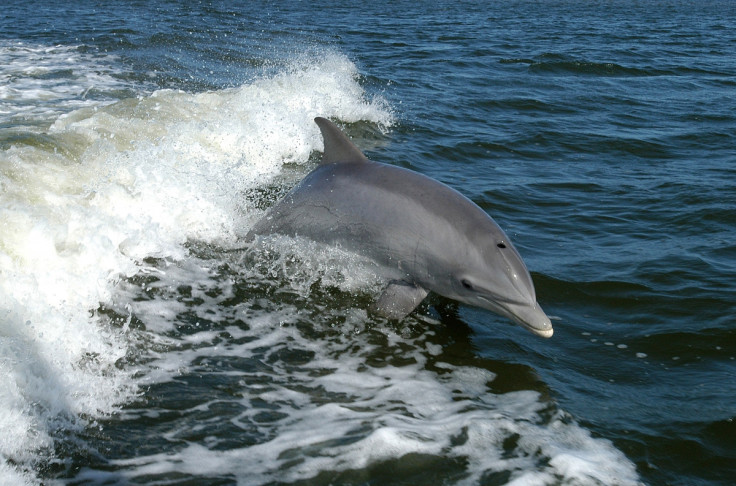Diseased Dolphins Found in Gulf of Mexico After BP Spill

Dolphins suffering from a range of serious illnesses and health problems were found in the Gulf of Mexico in the wake of the of the Deepwater Horizon oil rig spill, US researchers say.
Dolphins with liver disease, missing teeth, and one carrying a dead foetus were found off the coast of Louisiana in the wake of the spill, according to the first report on the health of the animals in the wake of the 2010 spill, in which 4.9 million barrels of oil were spilled into the ocean.
Many had abnormally high levels of stress hormones, and others were found to be suffering from pneumonia and other lung diseases.
The report's lead author, Dr Lori Schwacke, a researcher with the National Oceanic and Atmospheric Administration (NOAA), said: "I've never seen such a high prevalence of very sick animals.
"What we are seeing is consistent with oil exposure."
The disaster was the worst oil spill in US history, and BP spent weeks attempting to stem the flow of crude oil into the ocean.

According to the scientists, half of the 32 bottlenose dolphins caught in 2011 were seriously ill.
They were briefly held in captivity for health checks, before being released.
Their health was compared with that of 27 bottlenose dolphins caught off the coast of Sarasota Bay, Florida, which was unaffected by the spill.
The Sarasota Bay dolphins were found to have significantly lower levels of adrenal hormones indicating stress levels, and severe to moderate lung disease was five times more common in the Louisiana dolphins.
BP though said there was no conclusive proof that the illnesses were caused by the oil spill.
In a company statement, BP said: "Symptoms observed in the study have been seen in other dolphin mortality events that have been related to contaminants and conditions found in the northern Gulf, such as polychlorinated biphenyls (PCBs), DDT and pesticides."
The researchers conceded that no studies of dolphin health had been carried out in the area before the oil spill, making a comparison of health levels impossible, but said that tests of the blubber of the Louisiana dolphins showed lower levels of pesticides than those of the Florida dolphins.
They also said that the symptoms displayed by the Louisiana dolphins mirrored those of animals in laboratories exposed to oil.
© Copyright IBTimes 2024. All rights reserved.







